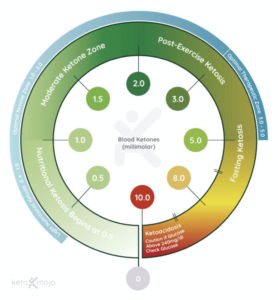Functional Medicine Weight Loss FAQs
Can a chiropractor help with weight loss? That is a good question. From one perspective, the chiropractic physician is trained in anatomy and physiology and as a group chiropractors tend to be more health conscious than their medical counterparts. From another perspective, weight loss can have some general recommendations that can be helpful for some people, but for people who struggle with weight loss and for people who have tried all the common sense approaches to weight loss with no results, more training is necessary. A chiropractor with training in Functional Medicine is very capable of finding the underlying metabolic imbalances that prevent most people from losing weight. For people who struggle with weight loss, a chiropractor with training in Functional Medicine might be just what the doctor ordered.
If you have ever lost weight, you know at some point you will reach a plateau and stop losing weight. When your metabolism adapts to the changes you have made, the weight loss stops. This is common and normal. But what do you do to get the weight loss going again? The number one thing is to do something different. Whatever caused you to lose weight the first time will not continue to work. I have spent my life researching and working with techniques to improve metabolism and metabolic function and each person has a unique make-up that responds to different things. Again there is no simple answer but with the right coaching and a good Functional Medicine doctor on your team it can be found.
The simple answer is yes they can. But not in the way most people hope. Taking a probiotic is not going to magically cause weight loss for most people. The key is how do we improve your digestive function and your microbiome? This can have a big impact on your metabolism and help in the quest to lose weight.
From a Functional Medicine perspective, there is no magic pill or vitamin that will solve all your problems. Healthy weight loss involves identifying and correcting metabolic imbalance and dysfunction. This can be accomplished by providing a comprehensive Functional Medicine exam and lab testing to identify areas of imbalance that might be adversely affecting the metabolism. The implementation of dietary, lifestyle and supplemental recommendations might be used to correct those imbalances. Vitamin B12 could possibly be part of the recommendations.
Turmeric is an herb with multiple health benefits. Can it help you lose weight? In Functional Medicine the inability to lose weight can be caused by many metabolic imbalances that affect the metabolism. One thing that can adversely affect the metabolism is inflammation, and turmeric is a good anti-inflammatory herb. Another Functional problem that can alter metabolism is insulin resistance, and turmeric has been shown to help with improving insulin resistance. Another metabolic factor that can affect the metabolism and prevent weight loss is bile production. Bile is digestive juice that helps the body digest fats and has an important affect on metabolism. In Functional Medicine there is no magic bullet or pill that will solve all your problems. But in the effort to restore balance, turmeric can be a useful tool.

Disclaimer: This page is for informational purposes only. It is not designed to substitute for professional and individualized health advice. Please do not stop or start taking prescription medication without the advice of your prescribing doctor, as this can be very dangerous to your health. You should always consult your prescribing doctor regarding prescription drugs.